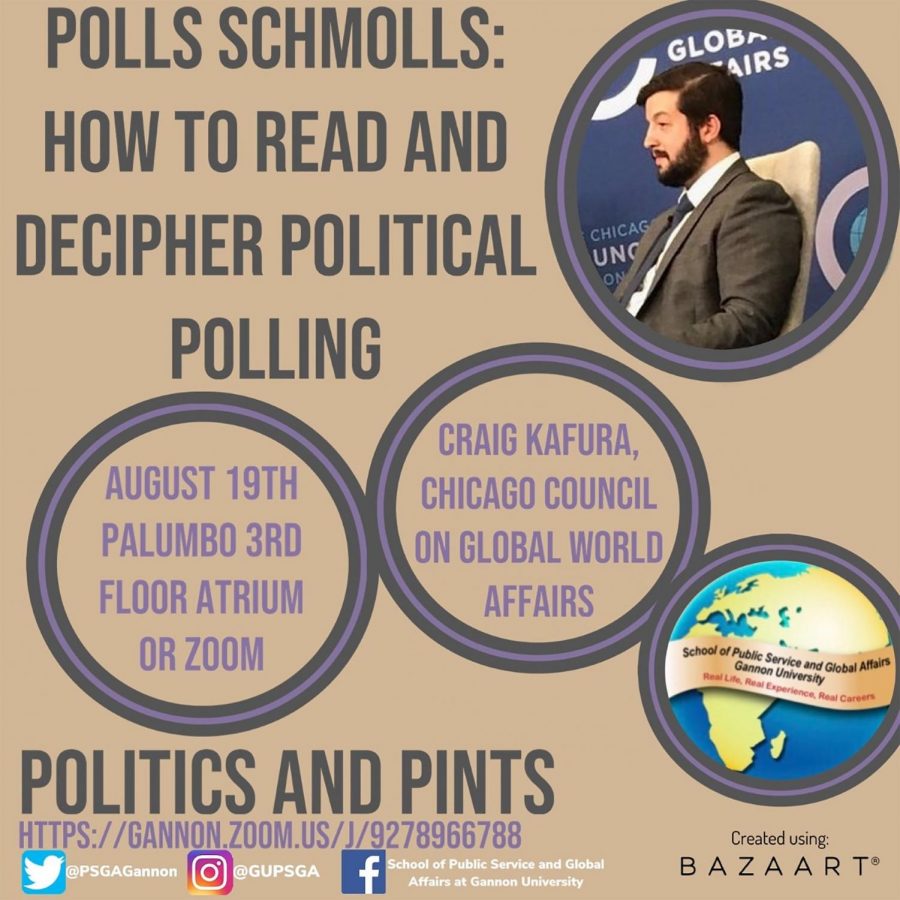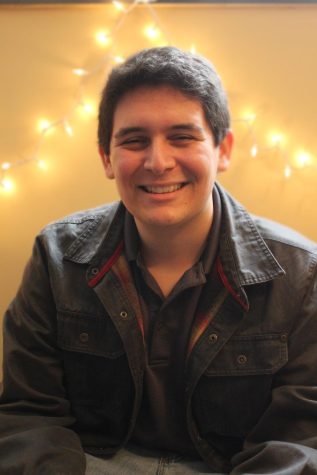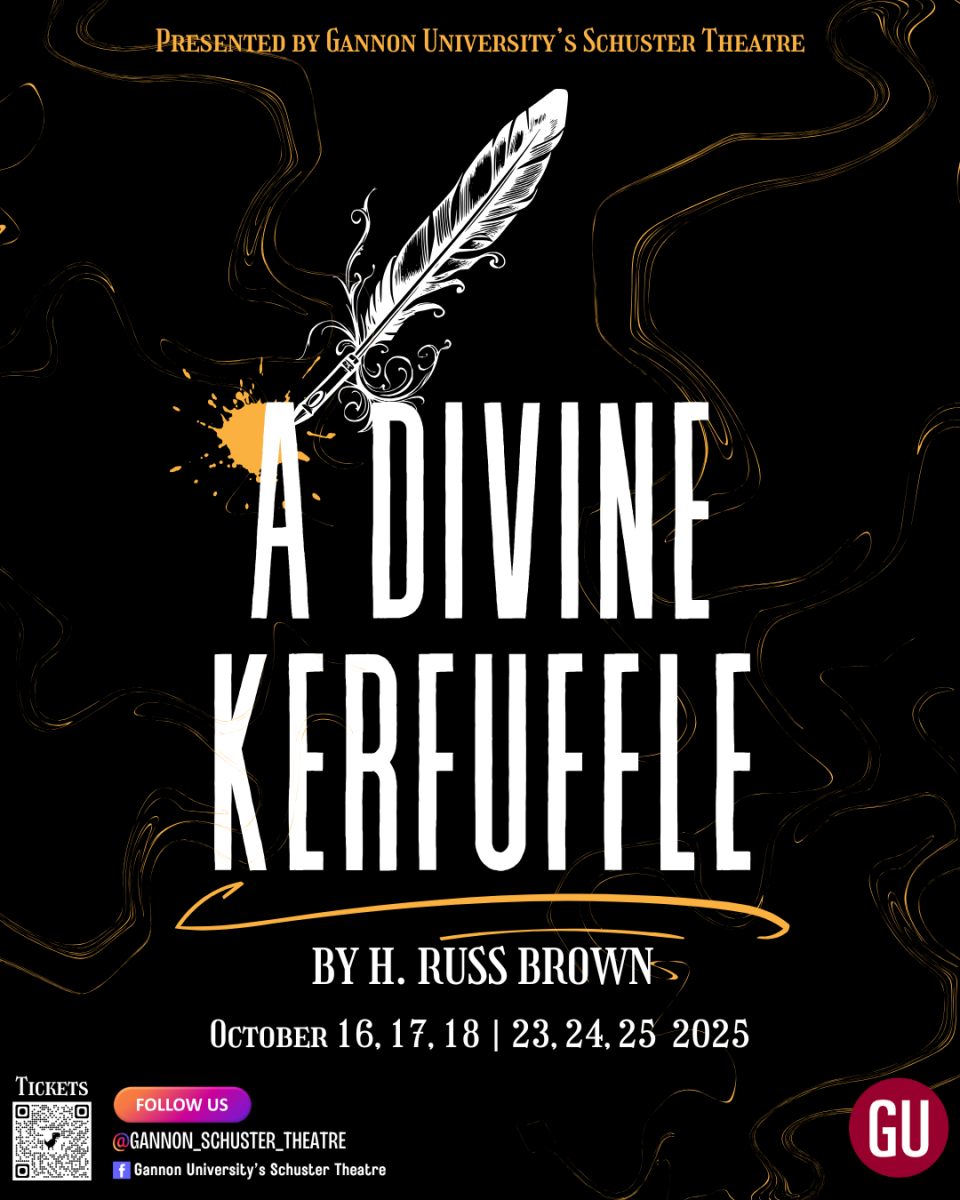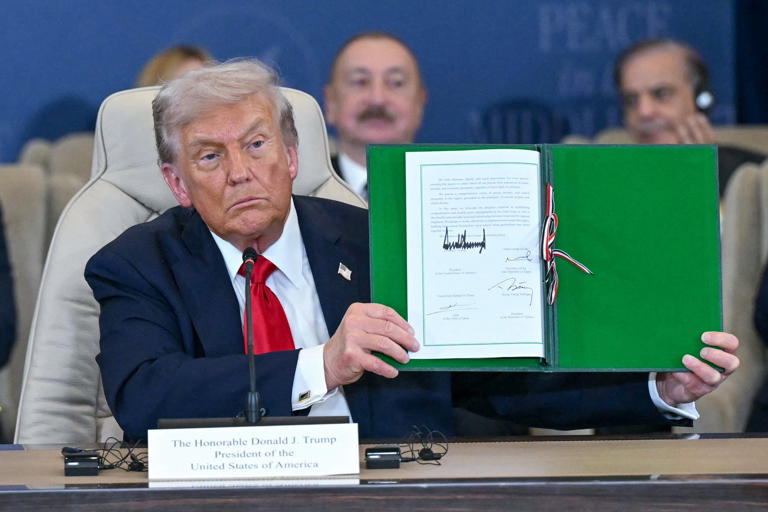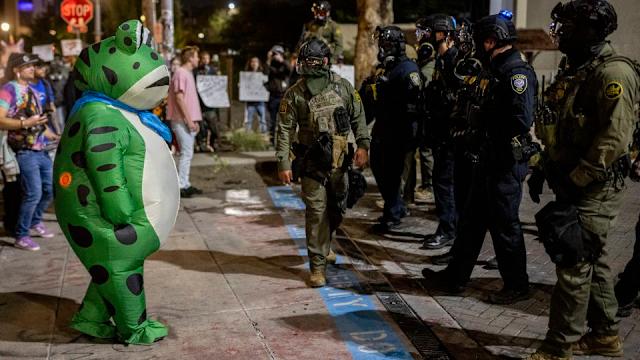Polling is focus at first Politics & Pints
August 25, 2020
The first Politics & Pints was held in the third-floor atrium of the Palumbo Academic Center Thursday evening with the main topic revolving around political polling.
The event, co-hosted by Jeff Bloodworth, Ph.D., history program director, and Peter Agresti, who holds a doctorate in law and serves as program director for legal studies, brought in close to a dozen students, including some students who participated via Zoom.
To discuss polling, Craig Kafura, who serves as assistant director of public opinion and foreign policy at the Chicago Council on Global Affairs, appeared as the special guest.
Kafura, who received his undergraduate in political science at Yale University and his master’s at Columbia University, discussed why polls are important in determining public opinion and how they can be a negative when done incorrectly.
At the beginning, Kafura explained how polls are conducted, and in how various formats of polls are used, including surveys and online polls, which have risen in popularity in the past decade, according to Kafura.
Kafura also explained the significance of the census, and some of the challenges that have arisen in getting minority populations in urban areas to understand the importance of partaking in the census.
As the event progressed, Kafura shifted from discussing the importance of polls and how they work to explaining how polls can be detrimental if not conducted properly. He noted polls such as the Rasmussen Poll for being generally inaccurate due to using inadequate sampling, poor wording of survey questions and variety.
Above all, Kafura stressed the need to have accurate polls in order to be representative of the people. To add context to his point, Kafura referenced the infamous Literary Digest issue in 1936, in which the magazine’s poll predicted a defeat for incumbent President Franklin D. Roosevelt; however, Roosevelt won in a landslide, and the magazine faced harsh scrutiny for a variety of inaccuracies in the polling.
Kafura ended the event by answering student questions and giving advice to those who were interested in pursuing a career in politics, polling or public policy.
In his main response, Kafura said that the key skills to have were good writing and communication, as these are the most effective ways to illustrate an idea or point.
Above all, the main idea, Kafura said, was to communicate ideas clearly, and always.
He also reminded passionate students that those with an appetite for politics are much different than the rest of the crowd.
“Political junkies and normal people have very different experiences in politics,” Kafura said.
Students who participated in the event came away happy with the experience they had.
Having an expert explain polling only months before a presidential election was fun, Heather Zelcs, a senior political science and legal studies major, said.
Zelcs also said she realized that the goal of polls matter.
“The format can be manipulated in order to get the kind of results you want,” Zelcs said.
“Something as minor as one word can make a big difference. So, he really affirmed my belief that you always have to double-check your source.”
Emily Hall, a senior criminal justice, chemistry and public service & global affairs major, said that she felt it was an enjoyable experience, given that she wasn’t particularly excited initially in the topic.
“I thought the speaker did a good job of explaining the nuances of polling, a lot of which I hadn’t considered previously,” Hall said.
Hall said she also enjoyed the Q&A session the speaker afforded to the students in attendance.
“I felt more engaged with the speaker, though I thought he was engaging before that,” Hall said.
Hall said that in the future, she will be more careful with what polls she reads and trusts.
As for her views regarding the accuracy and legitimacy of polls, Hall said that had changed slightly.
“I’m definitely more skeptical than I was before,” Hall said. “But there’s a lot of validity to some polls, I think.”
Owen Balas, a junior legal studies major, said having an expert present his thought-out opinion made the event more insightful.
“I think the simple takeaway was that we need to be very aware of where we get our information,” Balas said.
Balas, who said his trust in polls has never been strong, felt more reassured of their potential for being informative.
“I feel more informed on how they influence elections and even contemporary issues,” Balas said.
MICHAEL GUIDO


